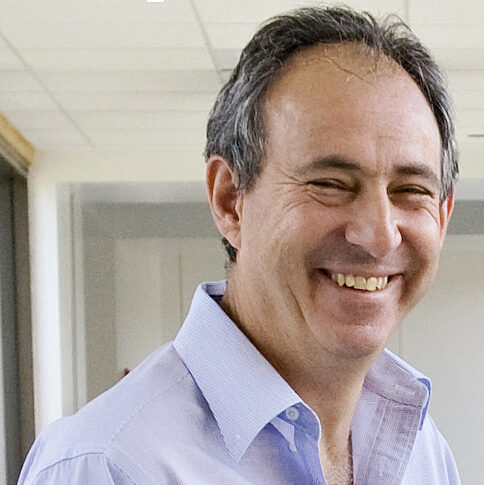UF diabetes expert wins award for leadership in litigation

For media inquiries call Shayna Brouker at 352-273-5810 or e-mail sbrouker@ufl.edu.
Desmond Schatz, M.D., medical director of the Diabetes Center of Excellence.
From the clinic to the courtroom, one of the University of Florida’s premier type 1 diabetes experts is leading the battle against the disease on all fronts.
Desmond Schatz, M.D., medical director of the Diabetes Center of Excellence, was part of a team that won a civil suit for Jeff Kapche, a detective living with type 1 diabetes. For their efforts, the American Diabetes Association will present its 2010 Public Policy Leadership Award to Schatz, Dr. Ralph DeFronzo and Dr. James Gavin, and the attorneys who worked on the case.
Members of the Kapche litigation team will accept the award on Friday, the first day of the ADA’s 70th Annual Scientific Sessions in Orlando. The sessions continue until June 29.
Kapche, 41, a police veteran at the sheriff’s office in Fort Bend, Texas, was denied his dream job as a special agent with the FBI, which claimed that daily insulin injections could interfere with his ability to perform in unpredictable situations.
The bureau’s unofficial policy dictated that agents manage their disease with an insulin pump, which continuously manages glucose levels. Schatz provided expert testimony to disprove the myth that pumping is superior to sticking — monitoring glucose levels with a portable blood test — when it comes to managing the disease.
“I cited many instances in which I believed he would do just as well as he was already doing with injections of insulin, and that he didn’t need a pump,” said Schatz, a professor and associate chairman of pediatrics in the UF College of Medicine. “In fact, going on an insulin pump in an FBI-designated area such as Iraq could for him be detrimental to not only his health, but also to the security of the United States. To insist (so) in his particular case, when his blood glucose control was so outstanding even before … was definitely wrong.”
The federal court ruling in Kapche v. Holder set a precedent that people cannot be denied employment based on disease management. Schatz asserted that, indeed, therapy always needs to be tailored to a patient’s individual needs and should consider his or her support system, family dynamics and financial situation.
Schatz has served the ADA in several administrative roles, including on the board of directors with ADA attorney John Griffin. Griffin, who has diabetes, also represented Kapche in a similar discrimination suit against the San Antonio Police Department, which denied Kapche a job for the same reason.
“I chose Dr. Schatz to be a member of the legal team because he is supremely competent, has great interpersonal skills and has an extensive scientific background,” Griffin said. “He also has a very passionate sense of patient rights. He is an advocate not just of medicine, but of the legal rights of patients. He has an innate sense of human dignity.”
Schatz studies the prevention and treatment of type 1 diabetes, formerly known as juvenile diabetes, which occurs in only 5 percent to 10 percent of all cases. In type 1 diabetes, the body does not produce its own insulin, which is necessary for converting sugar into energy.
Worldwide, there is a growing incidence of not only type 2 diabetes, the obesity-related disease, but of type 1 as well. The number of diabetes diagnoses grows by 3 percent each year, particularly in children under age 10.
“(Diabetes) is a tremendous burden to both the individual and to society and our roles both as advocates and scientists cannot let up,” Schatz said. “We have to eventually be able to reverse and prevent the disease.”
Schatz is the principal investigator for multiple research projects funded by the Juvenile Diabetes Research Foundation and the National Institutes of Health, including a program called TrialNet, a multicenter national and international group of investigators that testing therapies to prevent disease in patients and their families.
Other projects focus on reversing type 1 diabetes using stem cells from umbilical cord blood and examining the immune system’s influence on development of the disease. He is also involved in an NIH-funded study that genetically screens newborns for diabetes in North Central Florida. Beyond Florida, he serves on external advisory boards for studies in Israel and Australia funded by the NIH and Centers for Disease Control and Prevention.
Schatz said he would like to see greater advocacy efforts by all health-care providers, patients and their families.
“Together, obviously, as a united voice we are far stronger,” he said. “This should be at local, state, federal and, indeed, international levels.”